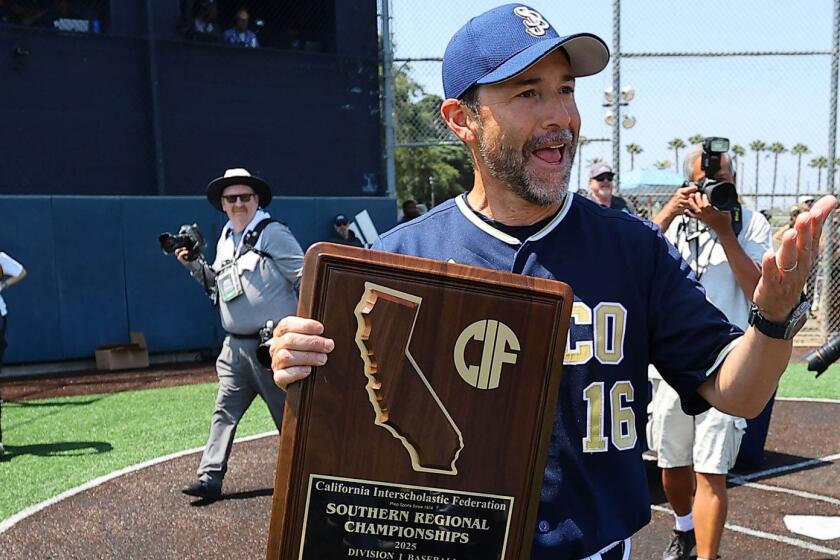CSUN Saw No Evidence of Illegal Aid for Gathers : College basketball: Those close to former Matador player say his modest lifestyle did not reflect extra benefits.
- Share via
If Loyola Marymount booster Albert Gersten gave money to former Cal State Northridge basketball standout Derrick Gathers it did not show, those close to the CSUN program said Thursday.
“I don’t even recall Derrick driving a car,” CSUN Coach Pete Cassidy said Thursday, the day after The Times reported that Derrick Gathers’ mother Lucille accused Gersten of giving money to Derrick and his brother Hank, the Loyola star who collapsed and died during a game March 4.
Gersten denies the allegations, which were described in a deposition taken in conjunction with a wrongful-death suit filed against Loyola and 13 other defendants.
Cassidy recalled that Derrick Gathers, a two-time all-California Collegiate Athletic Assn. selection, rode a bike, walked and caught rides with friends.
“He lived in the dorms one year and then in an apartment with a couple other kids off-campus,” Cassidy said. “If he was getting anything from Gersten he didn’t show it in his clothes, his mode of transportation or his lifestyle.”
CSUN center Todd Bowser, who played with Gathers in 1988-89, said he gave Gathers rides and helped him move into the apartment.
Northridge Athletic Director Bob Hiegert plans to focus on the source of the alleged funds.
“If Hank gave Derrick some money from whoever, that’s no different than (Derrick) getting money from mom or dad, but if (Gersten) gave him money that is a violation.”
Cassidy said his program is blameless.
“I can’t control what someone else from another school does,” Cassidy said. “We’re a victim by association. How could you possibly curb that? If there is a way, I don’t know what it is.”
An interpretation by Chuck Smrt, an NCAA assistant director of enforcement, did reveal, without addressing particulars, that a school such as CSUN would not be in violation under the extra-benefit legislation.
It states that a student-athlete cannot get what is generally not available to any other student. The key is that the illegal benefit has to come from an institutional representative: for example, a member of the coaching staff or a representative of the institution with athletic interests--the NCAA’s way of defining a booster. Gersten was not a CSUN booster.
The NCAA’s legislative services officials, who interpret rules, were unavailable for comment.
Gathers, whose eligibility ran out after last season, dropped out of school after his brother’s death.
“He’s not our problem from that point on,” Hiegert said. “If (Gersten) gave him a gift then, (Derrick) was not an NCAA athlete then.”
More to Read
Get our high school sports newsletter
Prep Rally is devoted to the SoCal high school sports experience, bringing you scores, stories and a behind-the-scenes look at what makes prep sports so popular.
You may occasionally receive promotional content from the Los Angeles Times.






